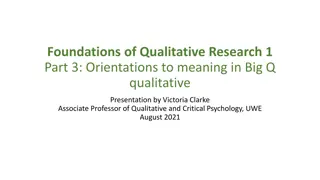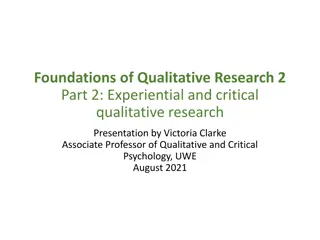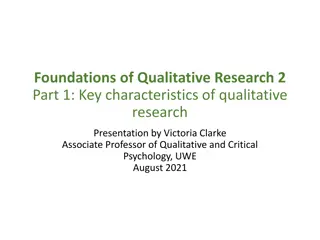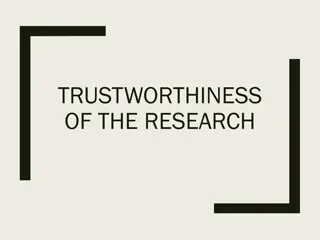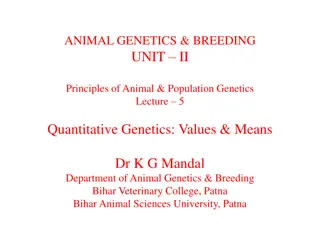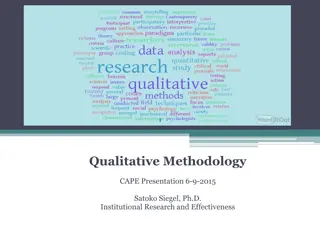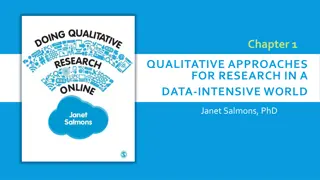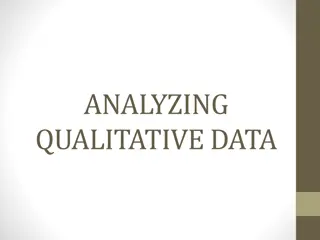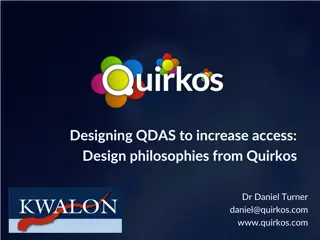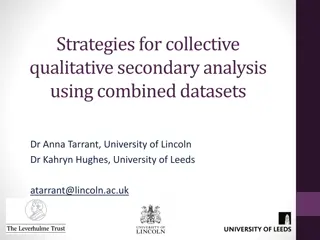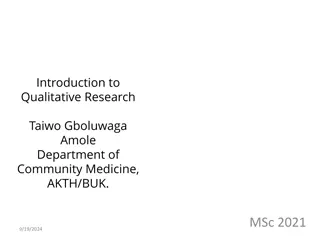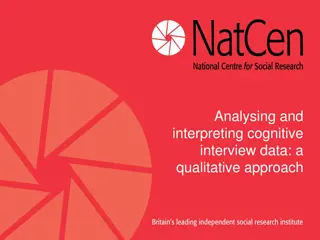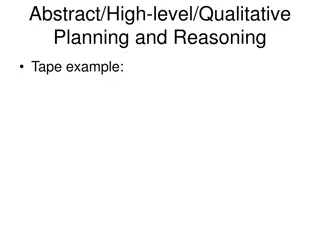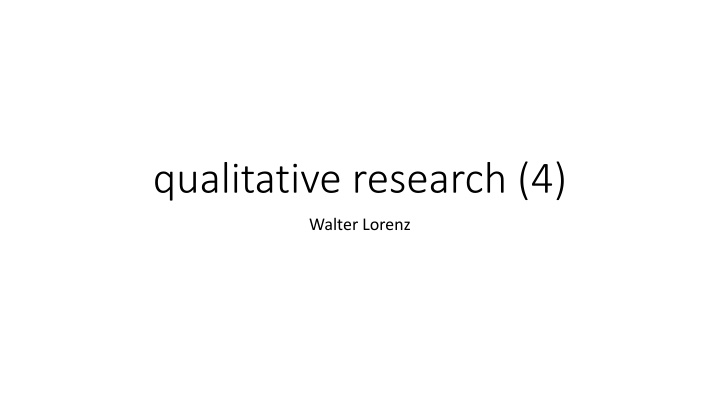
Qualitative Research Methods and Transformative Outlook in Social Studies
Explore qualitative research methods like focus groups and Grounded Theory, along with transformative outlooks in disability studies and violence against women. Discover historic examples of objectifying research practices shaping societal responses.
Download Presentation

Please find below an Image/Link to download the presentation.
The content on the website is provided AS IS for your information and personal use only. It may not be sold, licensed, or shared on other websites without obtaining consent from the author. If you encounter any issues during the download, it is possible that the publisher has removed the file from their server.
You are allowed to download the files provided on this website for personal or commercial use, subject to the condition that they are used lawfully. All files are the property of their respective owners.
The content on the website is provided AS IS for your information and personal use only. It may not be sold, licensed, or shared on other websites without obtaining consent from the author.
E N D
Presentation Transcript
qualitative research (4) Walter Lorenz
Instrument: Focus groups Purpose: deepening the understanding of the deeper meaning of an issue that emerged in research; testing (previous, preliminary) findings with a view of finding consensus; Establishes group members as experts in their fields of experience Forms the basis of further questions to be explored and verified
Method D: Grounded Theory (Glaser & Strauss, 1967) Grounded theory is a method of qualitative research in which data collection and analysis reciprocally inform and shape each other through an emergent interactive process. Grounded theory is a complex iterative process. The research begins with the raising of generative questions which help to guide the research but are not intended to be either static or confining. As the researcher begins to gather data, core theoretical concept(s) are identified. Tentative linkages are developed between the theoretical core concepts and the data. This early phase of the research tends to be very open and can take months. Later on the researcher is more engaged in verification and summary. The effort tends to evolve toward one core category that is central.
Steps in following a Grounded Theory approach 1. Identify field of study / sampling; general orientation, observations 2. Collect information from oral and written sources in the form of texts / transcripts 3. Code the texts by 1. Reading them carefully 2. Grouping key ideas together under detailed headings (coding proper) 3. Re-read codes to formulate general categories ( theoretical sampling ) 4. Integrate relevant literature 5. Test the emerging categories against the data /texts again and again 4. Theorise interrelationships between codes / categories; form hypotheses 5. Test hypotheses through further sampling or focus groups
Outlook: Transformative Outlook: Transformative research research taking the example of : disability studies Violence against women Roma women research
Historic warning examples of objectifying research (on disability) Seclusion (in the name of protection ) Sterilisation (as a preventative social policy measure) Chemical and physical straitjackets Change in orientation only after campaigning for the social model of disability Linking research models to emancipatory movements (civil rights, women s emancipation, gay rights) Distinction between inherent characteristics of the person and the societal responses; perspective of positive evaluation of diversity as pre-condition for paradigm change in research
For example disability research Even with the (good) intentions of constructivist models of research, the benefits of such research for the people concerned with disability can be dubious: a) Strengths and coping skills by people with disability often get forgotten b) researchers construct benefits for them but then move on to other fields and build their career, leaving disabled people to work for the implementation or results. Crucial difference: consideration of the power differential between researcher and research subjects : who has control over the findings?
Emancipatory and transformative research emancipatory transformative Focus Exclusively on disability as central issue Role of researcher / participant Assumes participants are conscious of their situation and ready to take leadership Model of research Participatory action research, interpretative approaches Tone Sets up us against them tone
Emancipatory and transformative research emancipatory transformative Focus Exclusively on disability as central issue Various dimensions of diversity associated with differential access to power and privilege (gender, race, class, sexual orientation) Role of researcher / particpant Assumes participants are conscious of their situation and ready to take leadership Team approach, capacity building as part of research process Model of research Participatory action research, interpretative approaches Multiple and mixed methods, culturally respectful, supportive of diverse needs Tone Sets up us against them tone Acknowledges need for real collaboration to challenge oppressive structures
Disability - terms of reference The authority for the construction of meaning within the disability community rests with the community s members Investigators should acknowledge that disability community members have the right to have those things that they value to be fully considered in all interactions Investigators should take into account the worldviews of the disability community In the application of these terms of reference, investigators should recognise the experiences, understandings and ways that reflect their contemporary cultures Views and perceptions of the critical reference group to be reflected in any process of evaluating results Investigators should negotiate within the disability groups the criteria for deciding how to meet cultural norms, social needs and priorities


